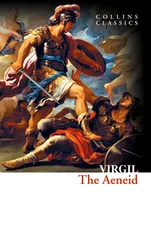Virgil - The Georgics
Здесь есть возможность читать онлайн «Virgil - The Georgics» — ознакомительный отрывок электронной книги совершенно бесплатно, а после прочтения отрывка купить полную версию. В некоторых случаях можно слушать аудио, скачать через торрент в формате fb2 и присутствует краткое содержание. Жанр: foreign_poetry, Поэзия, foreign_antique, foreign_prose, на английском языке. Описание произведения, (предисловие) а так же отзывы посетителей доступны на портале библиотеки ЛибКат.
- Название:The Georgics
- Автор:
- Жанр:
- Год:неизвестен
- ISBN:нет данных
- Рейтинг книги:5 / 5. Голосов: 1
-
Избранное:Добавить в избранное
- Отзывы:
-
Ваша оценка:
- 100
- 1
- 2
- 3
- 4
- 5
The Georgics: краткое содержание, описание и аннотация
Предлагаем к чтению аннотацию, описание, краткое содержание или предисловие (зависит от того, что написал сам автор книги «The Georgics»). Если вы не нашли необходимую информацию о книге — напишите в комментариях, мы постараемся отыскать её.
The Georgics — читать онлайн ознакомительный отрывок
Ниже представлен текст книги, разбитый по страницам. Система сохранения места последней прочитанной страницы, позволяет с удобством читать онлайн бесплатно книгу «The Georgics», без необходимости каждый раз заново искать на чём Вы остановились. Поставьте закладку, и сможете в любой момент перейти на страницу, на которой закончили чтение.
Интервал:
Закладка:
Virgil
The Georgics
GEORGIC I
What makes the cornfield smile; beneath what star
Maecenas, it is meet to turn the sod
Or marry elm with vine; how tend the steer;
What pains for cattle-keeping, or what proof
Of patient trial serves for thrifty bees;-
Such are my themes.
O universal lights
Most glorious! ye that lead the gliding year
Along the sky, Liber and Ceres mild,
If by your bounty holpen earth once changed
Chaonian acorn for the plump wheat-ear,
And mingled with the grape, your new-found gift,
The draughts of Achelous; and ye Fauns
To rustics ever kind, come foot it, Fauns
And Dryad-maids together; your gifts I sing.
And thou, for whose delight the war-horse first
Sprang from earth's womb at thy great trident's stroke,
Neptune; and haunter of the groves, for whom
Three hundred snow-white heifers browse the brakes,
The fertile brakes of Ceos; and clothed in power,
Thy native forest and Lycean lawns,
Pan, shepherd-god, forsaking, as the love
Of thine own Maenalus constrains thee, hear
And help, O lord of Tegea! And thou, too,
Minerva, from whose hand the olive sprung;
And boy-discoverer of the curved plough;
And, bearing a young cypress root-uptorn,
Silvanus, and Gods all and Goddesses,
Who make the fields your care, both ye who nurse
The tender unsown increase, and from heaven
Shed on man's sowing the riches of your rain:
And thou, even thou, of whom we know not yet
What mansion of the skies shall hold thee soon,
Whether to watch o'er cities be thy will,
Great Caesar, and to take the earth in charge,
That so the mighty world may welcome thee
Lord of her increase, master of her times,
Binding thy mother's myrtle round thy brow,
Or as the boundless ocean's God thou come,
Sole dread of seamen, till far Thule bow
Before thee, and Tethys win thee to her son
With all her waves for dower; or as a star
Lend thy fresh beams our lagging months to cheer,
Where 'twixt the Maid and those pursuing Claws
A space is opening; see! red Scorpio's self
His arms draws in, yea, and hath left thee more
Than thy full meed of heaven: be what thou wilt-
For neither Tartarus hopes to call thee king,
Nor may so dire a lust of sovereignty
E'er light upon thee, howso Greece admire
Elysium's fields, and Proserpine not heed
Her mother's voice entreating to return-
Vouchsafe a prosperous voyage, and smile on this
My bold endeavour, and pitying, even as I,
These poor way-wildered swains, at once begin,
Grow timely used unto the voice of prayer.
In early spring-tide, when the icy drip
Melts from the mountains hoar, and Zephyr's breath
Unbinds the crumbling clod, even then 'tis time;
Press deep your plough behind the groaning ox,
And teach the furrow-burnished share to shine.
That land the craving farmer's prayer fulfils,
Which twice the sunshine, twice the frost has felt;
Ay, that's the land whose boundless harvest-crops
Burst, see! the barns.
But ere our metal cleave
An unknown surface, heed we to forelearn
The winds and varying temper of the sky,
The lineal tilth and habits of the spot,
What every region yields, and what denies.
Here blithelier springs the corn, and here the grape,
There earth is green with tender growth of trees
And grass unbidden. See how from Tmolus comes
The saffron's fragrance, ivory from Ind,
From Saba's weakling sons their frankincense,
Iron from the naked Chalybs, castor rank
From Pontus, from Epirus the prize-palms
O' the mares of Elis.
Such the eternal bond
And such the laws by Nature's hand imposed
On clime and clime, e'er since the primal dawn
When old Deucalion on the unpeopled earth
Cast stones, whence men, a flinty race, were reared.
Up then! if fat the soil, let sturdy bulls
Upturn it from the year's first opening months,
And let the clods lie bare till baked to dust
By the ripe suns of summer; but if the earth
Less fruitful just ere Arcturus rise
With shallower trench uptilt it- 'twill suffice;
There, lest weeds choke the crop's luxuriance, here,
Lest the scant moisture fail the barren sand.
Then thou shalt suffer in alternate years
The new-reaped fields to rest, and on the plain
A crust of sloth to harden; or, when stars
Are changed in heaven, there sow the golden grain
Where erst, luxuriant with its quivering pod,
Pulse, or the slender vetch-crop, thou hast cleared,
And lupin sour, whose brittle stalks arise,
A hurtling forest. For the plain is parched
By flax-crop, parched by oats, by poppies parched
In Lethe-slumber drenched. Nathless by change
The travailing earth is lightened, but stint not
With refuse rich to soak the thirsty soil,
And shower foul ashes o'er the exhausted fields.
Thus by rotation like repose is gained,
Nor earth meanwhile uneared and thankless left.
Oft, too, 'twill boot to fire the naked fields,
And the light stubble burn with crackling flames;
Whether that earth therefrom some hidden strength
And fattening food derives, or that the fire
Bakes every blemish out, and sweats away
Each useless humour, or that the heat unlocks
New passages and secret pores, whereby
Their life-juice to the tender blades may win;
Or that it hardens more and helps to bind
The gaping veins, lest penetrating showers,
Or fierce sun's ravening might, or searching blast
Of the keen north should sear them. Well, I wot,
He serves the fields who with his harrow breaks
The sluggish clods, and hurdles osier-twined
Hales o'er them; from the far Olympian height
Him golden Ceres not in vain regards;
And he, who having ploughed the fallow plain
And heaved its furrowy ridges, turns once more
Cross-wise his shattering share, with stroke on stroke
The earth assails, and makes the field his thrall.
Pray for wet summers and for winters fine,
Ye husbandmen; in winter's dust the crops
Exceedingly rejoice, the field hath joy;
No tilth makes Mysia lift her head so high,
Nor Gargarus his own harvests so admire.
Why tell of him, who, having launched his seed,
Sets on for close encounter, and rakes smooth
The dry dust hillocks, then on the tender corn
Lets in the flood, whose waters follow fain;
And when the parched field quivers, and all the blades
Are dying, from the brow of its hill-bed,
See! see! he lures the runnel; down it falls,
Waking hoarse murmurs o'er the polished stones,
And with its bubblings slakes the thirsty fields?
Or why of him, who lest the heavy ears
O'erweigh the stalk, while yet in tender blade
Feeds down the crop's luxuriance, when its growth
First tops the furrows? Why of him who drains
The marsh-land's gathered ooze through soaking sand,
Chiefly what time in treacherous moons a stream
Goes out in spate, and with its coat of slime
Holds all the country, whence the hollow dykes
Sweat steaming vapour?
But no whit the more
For all expedients tried and travail borne
By man and beast in turning oft the soil,
Do greedy goose and Strymon-haunting cranes
And succory's bitter fibres cease to harm,
Or shade not injure. The great Sire himself
No easy road to husbandry assigned,
And first was he by human skill to rouse
The slumbering glebe, whetting the minds of men
With care on care, nor suffering realm of his
In drowsy sloth to stagnate. Before Jove
Fields knew no taming hand of husbandmen;
To mark the plain or mete with boundary-line-
Even this was impious; for the common stock
They gathered, and the earth of her own will
All things more freely, no man bidding, bore.
He to black serpents gave their venom-bane,
And bade the wolf go prowl, and ocean toss;
Shook from the leaves their honey, put fire away,
Интервал:
Закладка:
Похожие книги на «The Georgics»
Представляем Вашему вниманию похожие книги на «The Georgics» списком для выбора. Мы отобрали схожую по названию и смыслу литературу в надежде предоставить читателям больше вариантов отыскать новые, интересные, ещё непрочитанные произведения.
Обсуждение, отзывы о книге «The Georgics» и просто собственные мнения читателей. Оставьте ваши комментарии, напишите, что Вы думаете о произведении, его смысле или главных героях. Укажите что конкретно понравилось, а что нет, и почему Вы так считаете.











